- Home
- P. G. Wodehouse
Thank You, Jeeves: Page 15
Thank You, Jeeves: Read online
Page 15
It couldn't have been very long after this when the front door was suddenly flung open. Somebody emerged. The door slammed. And then the emerger started to stump rapidly down the drive in the direction of the gates.
There had been just a moment when the light from the hall had shone upon this bloke. It had been long enough for me to identify him.
This sudden exiter, who was now padding away into the darkness with every outward sign of being fed to the eye teeth, was none other than Sir Roderick Glossop. And his face, I noted, was as black as the ace of spades.
A few moments later, while I was still wondering what it was all about and generally turning the thing over in my mind, I observed Jeeves looming up on the right flank.
I was glad to see him. I desired enlightment.
'What was all that, Jeeves?'
'The disturbance, sir?'
'It sounded as if little Seabury was being murdered. No such luck, I take it?'
'The young gentleman was the victim of a personal assault, sir. At the hands of Sir Roderick Glossop. I was not an actual eyewitness of the episode. I derive my information from Mary, the parlourmaid, who was present in person.'
'Present?'
'Peeping through the door, sir. Sir Roderick's appearance when she encountered him by chance on the stairs seems to have affected the girl powerfully, and she tells me that she had followed him about in a stealthy manner ever since, waiting to see what he would do next. I gather that his aspect fascinated her. She is inclined to be somewhat frivolous in her mental attitude, like so many of these young girls, sir.'
'And what occurred?'
'The affair may be said to have had its inception, sir, when Sir Roderick, passing through the hall, stepped upon the young gentleman's butter-slide.'
'Ah! So he put that project through, did he?'
'Yes, sir.'
'And Sir Roderick came a stinker?'
'He appears to have fallen with some heaviness, sir. The girl Mary spoke of it with a good deal of animation. She compared his descent to the delivery of a ton of coals. I confess the imagery somewhat surprised me, for she is not a highly imaginative girl.'
I smiled appreciatively. The evening, I felt, might have begun rockily, but it was certainly ending well.
'Incensed by this, Sir Roderick appears to have hastened to the drawing-room, where he immediately subjected Master Seabury to a severe castigation. Her ladyship vainly endeavoured to induce him to desist, but he was firm in his refusal. The upshot of the matter was a definite rift between her ladyship and Sir Roderick, the former stating that she never wished to see him again, the latter asseverating that, if he could once get safely out of this pestilential house, he would never darken its doors again.'
'A real mix-up.'
'Yes, sir.'
'And the engagement's off?'
'Yes, sir. The affection which her ladyship felt for Sir Roderick was instantaneously swept away on the tidal wave of injured mother love.'
'Rather well put, Jeeves.'
'Thank you, sir.'
'Then Sir Roderick has pushed off for ever?'
'Apparently, sir.'
'A lot of trouble Chuffnell Hall is seeing these days. Almost as if there was a curse on the place.'
'If one were superstitious, one might certainly suppose so, sir.'
'Well, if there wasn't a curse on it before, you can bet there are about fifty-seven now. I heard old Glossop applying them as he passed.'
'He was much moved, I take it, sir?'
'Very much moved, Jeeves.'
'So I should imagine, sir. Or he would scarcely have left the house in that condition.'
'How do you mean?'
'Well, sir, if you consider. It will scarcely be feasible for him to return to his hotel in the existing circumstances. His appearance would excite remark. Nor, after what has occurred, can he very well return to the Hall.'
I saw what he was driving at.
'Good Lord, Jeeves! You open up a new line of thought. Let me just review this. He can't go to his hotel – no, I see that, and he can't crawl back to the Dowager Lady C and ask for shelter – no, I see that too. It's a dead stymie. I can't imagine what on earth he'll do.'
'It is something of a problem, sir.'
I was silent for a moment. Pensive. And, oddly enough, for you would have thought my mood would have been one of sober joy, the heart was really rather bleeding a bit.
'Do you know, Jeeves, scurvily as that man has treated me in the past, I can't help feeling sorry for him. I do, absolutely. He's in such an awful jam. It was bad enough for me being a black-faced wanderer, but I hadn't the position to keep up that he has. I mean to say, the world, observing me in this condition, might quite easily just have shrugged its shoulders and murmured "Young Blood!" or words to that effect, what?'
'Yes, sir.'
'But not with a bloke of his standing.'
'Very true, sir.'
'Well, well, well! Dear, dear, dear! I suppose, if you come right down to it, this is the vengeance of Heaven.'
'Quite possibly, sir.'
It isn't often that I point the moral, but I couldn't help doing it now.
'It just shows how we ought always to be kind, even to the humblest, Jeeves. For years this Glossop has trampled on my face with spiked shoes, and see where it has landed him. What would have happened if we had been on chummy terms at this juncture? He would have been on velvet. Observing him shooting past just now, I should have stopped him. I should have called out to him "Hi, Sir Roderick, half a second. Don't go roaming about the place in make-up. Stick around here for a while and pretty soon Jeeves will be arriving with the necessary butter, and all will be well." Shouldn't I have said that, Jeeves?'
'Something of that general trend, no doubt, sir.'
'And he would have been saved from this fearful situation, this sore strait, in which he now finds himself. I dare say that man won't be able to get butter till well on in the morning. Not even then, if he hasn't money on the person. And all because he wouldn't treat me decently in the past. Makes you think a bit, that, Jeeves, what?'
'Yes, sir.'
'But it's no use talking about it, of course. What's done is done.'
'Very true, sir. The moving finger writes and, having writ, moves on, nor all your piety and wit can lure it back to cancel half a line, nor all your tears wash out a word of it.'
'Quite. And now, Jeeves, the butter. I must be getting about my business.'
He sighed in a respectful sort of way.
'I am extremely sorry to be obliged to inform you, sir, that, owing to Master Seabury having used it all for his slide, there is no butter in the house.'
16 TROUBLE AT THE DOWER HOUSE
I stood there with my hand out, frozen to the spot. The faculties seemed numbed. I remember once, when I was in New York, one of those sad-eyed Italian kids who whizz about Washington Square on roller skates suddenly projected himself with extraordinary violence at my waistcoat as I strolled to and fro, taking the air. He reached journey's end right on the third button from the top, and I had much the same sensation now as I had had then. A sort of stricken feeling. Stunned. Breathless. As if somebody had walloped the old soul unexpectedly with a sandbag.
'What!'
'Yes, sir.'
'No butter?'
'No butter, sir.'
'But, Jeeves, this is frightful.'
'Most disturbing, sir.'
If Jeeves has a fault, it is that his demeanour on these occasions too frequently tends to be rather more calm and unemotional than one could wish. One lodges no protest, as a rule, because he generally has the situation well in hand and loses no time in coming before the Board with one of his ripe solutions. But I have often felt that I could do with a little more leaping about with rolling eyeballs on his part, and I felt it now. At a moment like the present, the adjective 'disturbing' seemed to me to miss the facts by about ten parasangs.
'But what shall I do?'
'I fear th
at it will be necessary to postpone the cleansing of your face till a later date, sir. I shall be in a position to supply you with butter to-morrow.'
'But to-night?'
'To-night, I am afraid, sir, you must be content to remain in statu quo.'
'Eh?'
'A Latin expression, sir.'
'You mean nothing can be done till to-morrow?'
'I fear not, sir. It is vexing.'
'You would go so far as to describe it as that?'
'Yes, sir. Most vexing.'
I breathed a bit tensely.
'Oh, well, just as you say, Jeeves.'
I pondered.
'And what do I do in the meantime?'
'As you have had a somewhat trying evening, I think it would be best, sir, if you were to get a good sleep.'
'On the lawn?'
'If I might make the suggestion, sir, I think you would be more comfortable in the Dower House. It is only a short distance across the park, and it is unoccupied.'
'It can't be. They wouldn't leave it empty.'
'One of the gardeners is acting as caretaker while her ladyship and Master Seabury are visiting the Hall, but at this hour he is always down at the "Chuffnell Arms" in the village. It would be quite simple for you to effect an entrance and establish yourself in one of the upper rooms without his cognizance. And tomorrow morning I could join you there with the necessary materials.'
I confess it wasn't my idea of a frightfully large evening.
'You've nothing brighter to suggest?'
'No, sir.'
'You wouldn't consider letting me have your bed for the night?'
'No, sir.'
'Then I might as well be moving.'
'Yes, sir.'
'Good night, Jeeves,' I said moodily.
'Good night, sir.'
It didn't take me long to get to the Dower House, and the trip seemed shorter than it actually was, because my mind was occupied in transit with a sort of series of silent Hymns of Hate directed at the various blokes who had combined to land me in what Jeeves would have called this vexing situation – featuring little Seabury.
The more I thought of this stripling, the more the iron entered into my soul. And one result of my meditations regarding him was to engender – I think it's engender – an emotion towards Sir Roderick Glossop which came pretty near to being a spirit of kindliness.
You know how it is. You go along for years looking on a fellow as a blister and a menace to the public weal, and then one day you suddenly hear of some decent thing he's done and it makes you feel there must be good in the chap, after all. It was so in the matter of this Glossop. I had suffered much at his hands since first our paths had crossed. In the human Zoo which Fate has caused to centre about Bertram Wooster, he had always ranked high up among the more vicious specimens – many good judges, indeed, considering that he even competed for the blue ribbon with that great scourge of modern times, my Aunt Agatha. But now, reviewing his recent conduct, I must admit that I found myself definitely softening towards him.
Nobody, I reasoned, who could slosh young Seabury like that could be altogether bad. There must be fine metal somewhere among the dross. And I actually went so far as to say to myself with something of a rush of emotion that, if ever things so shaped themselves that I could go freely about my affairs again, I would look the man up and endeavour to fraternize with him. I had even reached the stage of toying with the idea of a nice little lunch, with him on one side of the table and me on the other, sucking down some good, dry vintage wine and chatting like old friends, when I found that I had arrived at the outskirts of the Dower House.
This bin or depository for the widows of deceased Lords Chuffnell was a medium-sized sort of shack standing in what the advertisements describe as spacious and commodious grounds. You entered by a five-barred gate set in a box hedge and approached by a short gravel drive – unless you were planning to break in through a lower window, in which case you sneaked along a grass border, skipping silently from tree to tree.
This is what I did, though at a casual glance it didn't seem really necessary. The place looked deserted. Still, so far, of course, I had only seen the front of it: and if the gardener in charge had changed his policy of going down to the local pub for a refresher at this hour and was still on the premises, he would be round at the back. It was thither, therefore, that I now directed the footsteps, making them as snaky as possible.
I can't say I liked the prospect before me. Jeeves had spoken airily – or glibly – of busting in and making myself at home for the night; but my experience has been that whenever I try to do a bit of burgling something always goes wrong. I had not yet forgotten that time Bingo Little persuaded me to break into his house and pinch the dictaphone record of the mushy article his wife, née Rosie M. Banks, the well-known female novelist, had written about him for my Aunt Dahlia's paper, Milady's Boudoir. Pekingese, parlourmaids, and policemen had entered into the affair, you may remember, causing me despondency and alarm: and I didn't want anything of that nature happening again.
So it was with a pretty goodish amount of caution that I now sidled round to the back: and when the first thing the eye fell on was the kitchen door standing ajar, I did not rush in with the vim I would have displayed a year or so earlier, before Life had made me the grim, suspicious man I am today: but stood there cocking a wary eye at it. It might be all right. On the other hand, it might not be all right. Time alone could tell.
The next moment, I was dashed glad I had held off, because I suddenly heard someone whistling in the house, and I saw what that meant. It meant that the gardener bloke, instead of going down to the 'Chuffnell Arms' for a snifter, had decided to stay home and have a quiet evening among his books. So much for Jeeves's authoritative inside information.
I drew back into the shadows like a leopard, feeling pretty peeved. I felt that Jeeves had no right to say that fellows went down to the village for a spot at such and such a time when they didn't.
And then suddenly something happened that threw an entirely new light on the position of affairs, and I saw that I had misjudged the honest fellow. The whistling stopped, there was a single, brief hiccough, and then from inside came the sound of somebody singing 'Lead, Kindly Light'.
The occupant of the Dower House was no mere gardener. It was Moscow's Pride, the unspeakable Brinkley, who lurked therein.
The situation seemed to me to call for careful, unhurried thought.
The whole trouble with fellows like Brinkley is that in dealing with them you cannot go by the form book. They are such in-and-out performers. To-night, for instance, within the space of little more than an hour, I had seen this man ravening to and fro with a carving knife and also tolerantly submitting to having himself kicked by Chuffy practically the whole length of the Chuffnell Hall drive. It all seemed to be a question of what mood he happened to be in at the time. If, therefore, I was compelled to ask myself, I were to walk boldly into the Dower House now, which manifestation of this many-sided man would greet me? Should I find a deferential lover of peace whom it would be both simple and agreeable to take by the slack of the trousers and bung out? Or should I have to spend the remainder of the night racing up and downstairs with him a short head behind me?
And, arising out of this, what had become of that carving knife of his? As far as I could ascertain, he did not appear to have it on his person during the interview with Chuffy. But then, on the other hand, he might simply have left it somewhere and collected it again by now.
Reviewing the matter from every angle, I decided to remain where I was; and the next moment the trend of events showed that the decision had been a wise one. He had just got as far as that bit about 'The night is dark' and seemed to be going strong, though a little uncertain in the lower register, when he suddenly broke off. And the next thing I heard was a most frightful outbreak of shoutings and clumping and hangings. What had set him off, I could not, of course, say; but the sounds left little room for doubt that for so
me reason or other the fellow had abruptly returned to what I might call the carving-knife phase.
One of the advantages of being in the country, if you belong, like Brinkley, to the more aggressive type of loony, is that you have great freedom of movement. The sort of row he was making now, if made in, let us say, Grosvenor Square or Cadogan Terrace, would infallibly have produced posses of policemen within the first two minutes. Windows would have been raised, whistles blown. But in the peaceful seclusion of the Dower House, Chuffnell Regis, he was granted the widest scope for self-expression. Except for the Hall, there wasn't another house within a mile: and even the Hall was too far away for the ghastly uproar he was making to be more than a faint murmur.
As to what he thought he was chasing, there again one could make no certain pronouncement. It might be that the gardener-caretaker had not gone to the village, after all, and was now wishing that he had. Or it might be, of course, that a fellow in Brinkley's sozzled condition did not require a definite object of the chase, but simply chased rainbows, so to speak, for the sake of the exercise.
I was inclining to this latter view, and wondering a little wistfully if there mightn't be a chance of him falling downstairs and breaking his neck, when I found that I had been wrong. For some minutes the noise had grown somewhat fainter, activities seeming to have shifted to some distant part of the house; but now it suddenly hotted up again. I heard feet clattering downstairs. Then there was a terrific crash. And immediately after that the back door was burst open, and out shot a human form. It whizzed rapidly in my direction, tripped over something, and came a purler almost at my feet. And I was about to commend my soul to God and jump on its gizzard, hoping for the best, when something in the tone of the comments it was making – a sort of educated profanity which seemed to give evidence of a better bringing-up than Brinkley could possibly have had – made me pause.

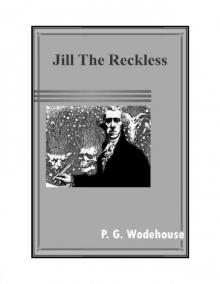 Jill the Reckless
Jill the Reckless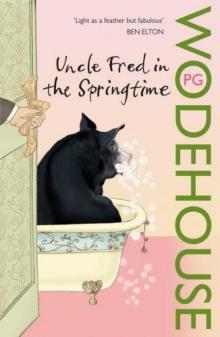 Uncle Fred in the Springtime
Uncle Fred in the Springtime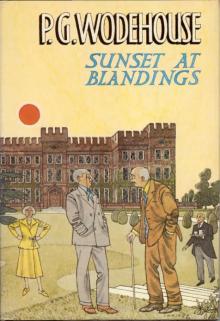 Sunset at Blandings
Sunset at Blandings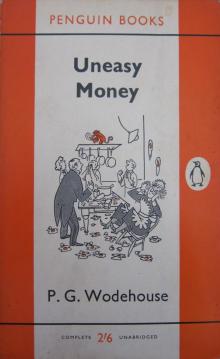 Uneasy Money
Uneasy Money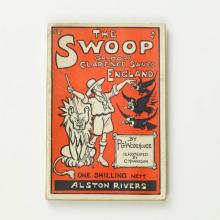 The Swoop! or, How Clarence Saved England: A Tale of the Great Invasion
The Swoop! or, How Clarence Saved England: A Tale of the Great Invasion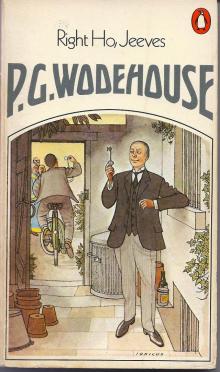 Right Ho, Jeeves
Right Ho, Jeeves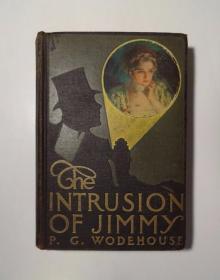 The Intrusion of Jimmy
The Intrusion of Jimmy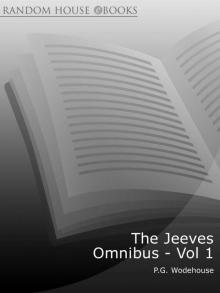 The Jeeves Omnibus - Vol 1:
The Jeeves Omnibus - Vol 1: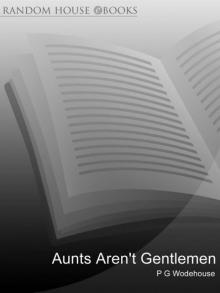 Aunts Aren't Gentlemen:
Aunts Aren't Gentlemen: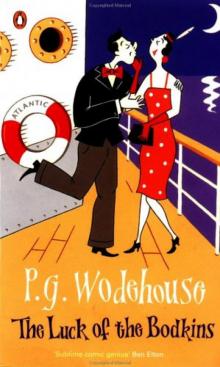 The Luck of the Bodkins
The Luck of the Bodkins The Little Nugget
The Little Nugget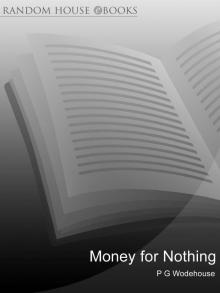 Money for Nothing
Money for Nothing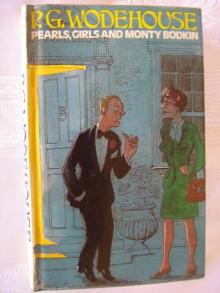 Pearls, Girls and Monty Bodkin
Pearls, Girls and Monty Bodkin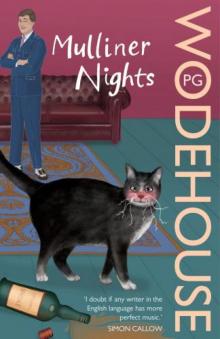 Mulliner Nights
Mulliner Nights Blandings Castle and Elsewhere
Blandings Castle and Elsewhere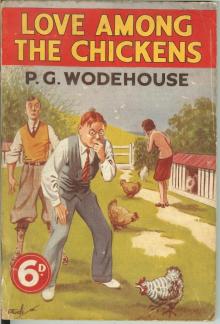 Love Among the Chickens
Love Among the Chickens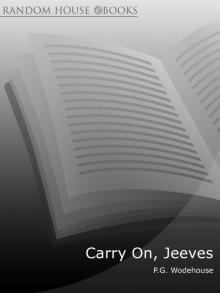 Carry On, Jeeves!
Carry On, Jeeves!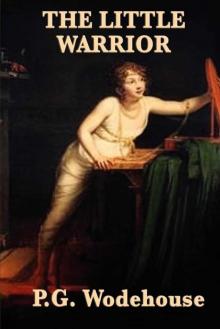 The Little Warrior
The Little Warrior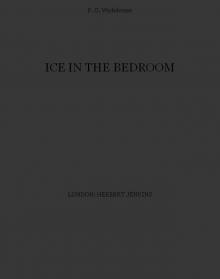 Ice in the Bedroom
Ice in the Bedroom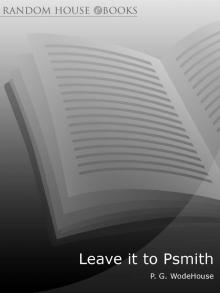 Leave It to Psmith
Leave It to Psmith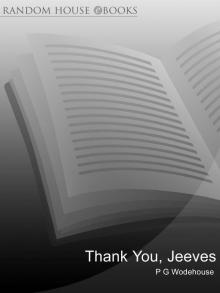 Thank You, Jeeves:
Thank You, Jeeves: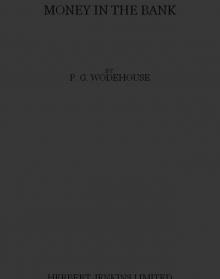 Money in the Bank
Money in the Bank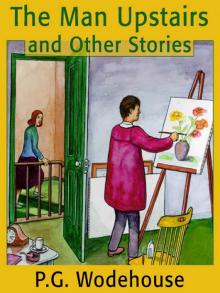 The Man Upstairs and Other Stories
The Man Upstairs and Other Stories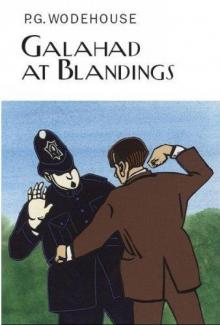 Galahad at Blandings
Galahad at Blandings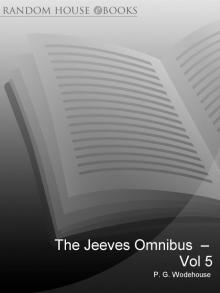 The Jeeves Omnibus Vol. 5
The Jeeves Omnibus Vol. 5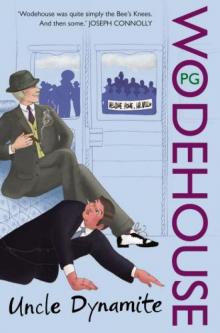 Uncle Dynamite
Uncle Dynamite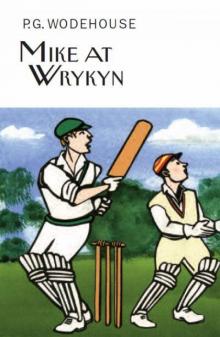 Mike at Wrykyn
Mike at Wrykyn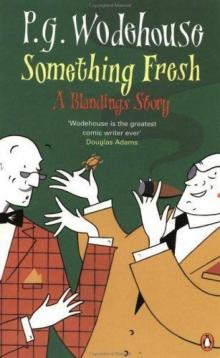 Something Fresh
Something Fresh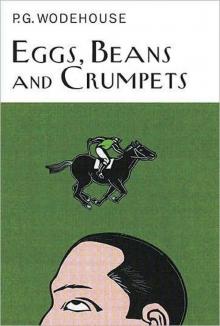 Eggs, Beans and Crumpets
Eggs, Beans and Crumpets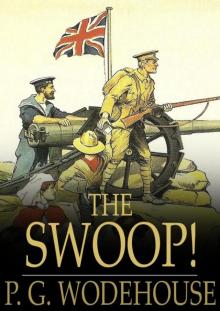 The Swoop: How Clarence Saved England (Forgotten Books)
The Swoop: How Clarence Saved England (Forgotten Books)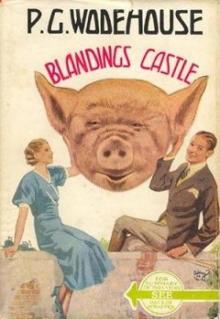 Blanding Castle Omnibus
Blanding Castle Omnibus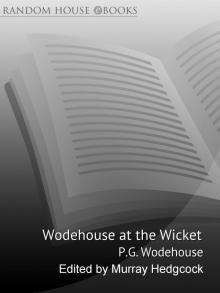 Wodehouse at the Wicket: A Cricketing Anthology
Wodehouse at the Wicket: A Cricketing Anthology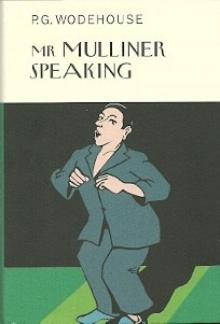 Mr. Mulliner Speaking
Mr. Mulliner Speaking Hot Water
Hot Water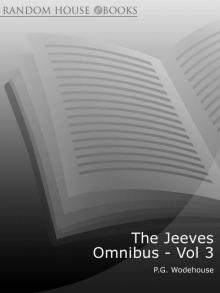 The Jeeves Omnibus - Vol 3: The Mating Season / Ring for Jeeves / Very Good, Jeeves
The Jeeves Omnibus - Vol 3: The Mating Season / Ring for Jeeves / Very Good, Jeeves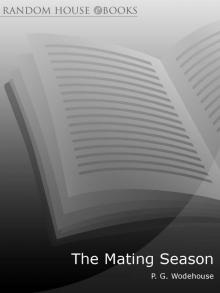 The Mating Season
The Mating Season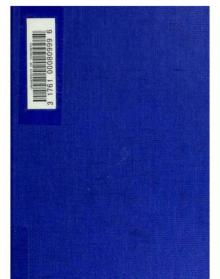 Meet Mr. Mulliner
Meet Mr. Mulliner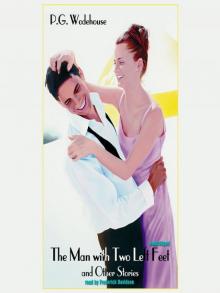 The Man with Two Left Feet, and Other Stories
The Man with Two Left Feet, and Other Stories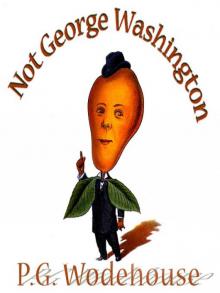 Not George Washington — an Autobiographical Novel
Not George Washington — an Autobiographical Novel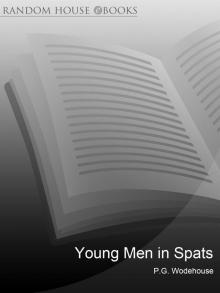 Young Men in Spats
Young Men in Spats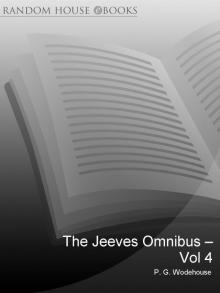 The Jeeves Omnibus Vol. 4
The Jeeves Omnibus Vol. 4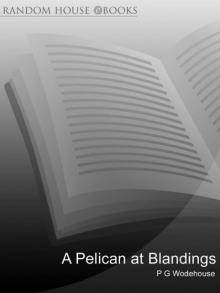 A Pelican at Blandings:
A Pelican at Blandings: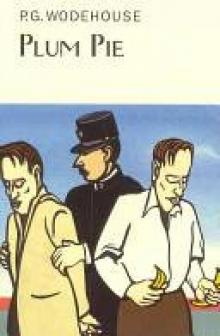 Plum Pie
Plum Pie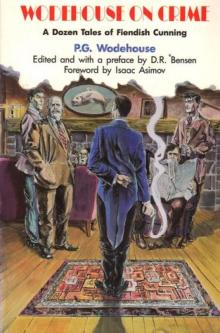 Wodehouse On Crime
Wodehouse On Crime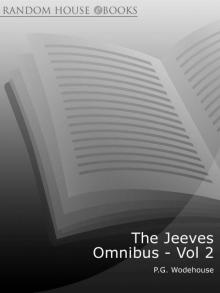 The Jeeves Omnibus Vol. 2: Right Ho, Jeeves / Joy in the Morning / Carry On, Jeeves
The Jeeves Omnibus Vol. 2: Right Ho, Jeeves / Joy in the Morning / Carry On, Jeeves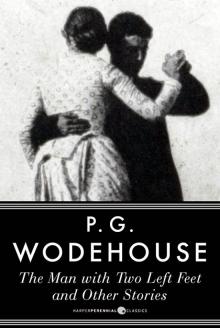 The Man With Two Left Feet
The Man With Two Left Feet Full Moon:
Full Moon: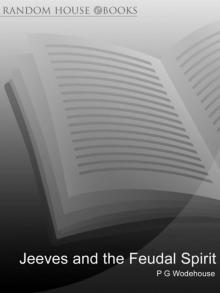 Jeeves and the Feudal Spirit:
Jeeves and the Feudal Spirit: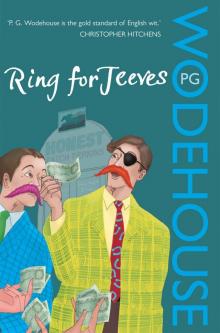 Ring For Jeeves
Ring For Jeeves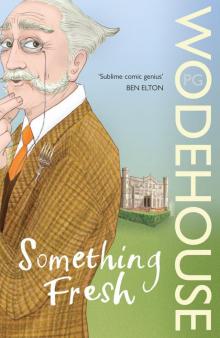 Something New
Something New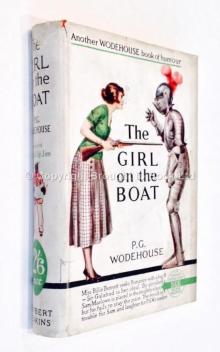 The Girl on the Boat
The Girl on the Boat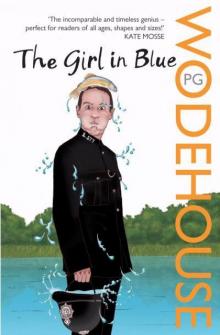 The Girl in Blue
The Girl in Blue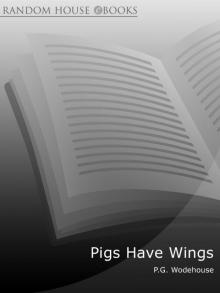 Pigs Have Wings:
Pigs Have Wings: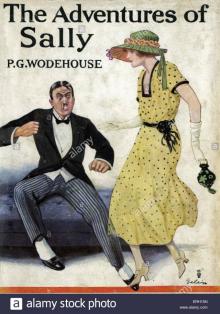 The Adventures of Sally
The Adventures of Sally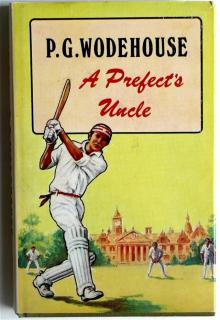 A Prefect's Uncle
A Prefect's Uncle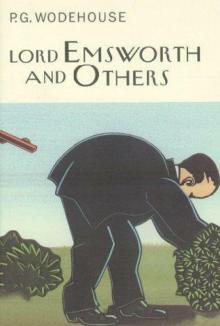 Lord Emsworth and Others
Lord Emsworth and Others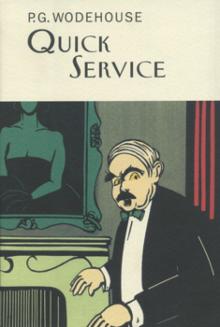 Quick Service
Quick Service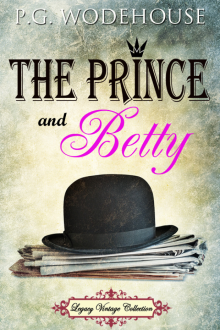 The Prince and Betty
The Prince and Betty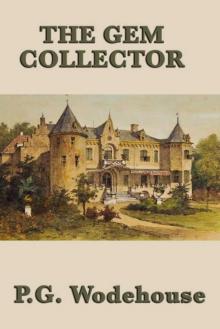 The Gem Collector
The Gem Collector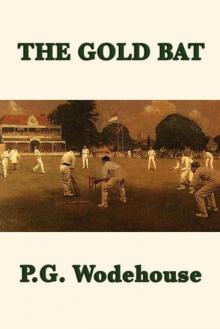 The Gold Bat
The Gold Bat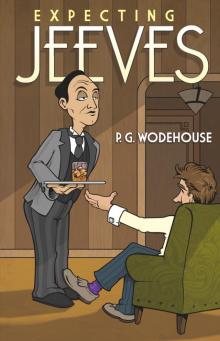 Expecting Jeeves
Expecting Jeeves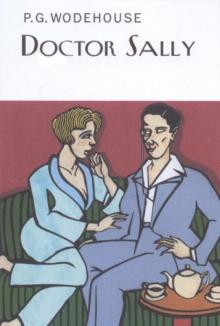 Doctor Sally
Doctor Sally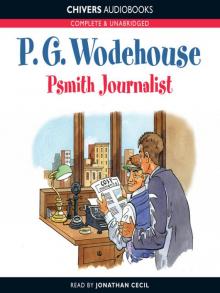 Psmith, Journalist
Psmith, Journalist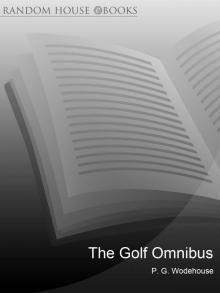 The Golf Omnibus
The Golf Omnibus Heavy Weather
Heavy Weather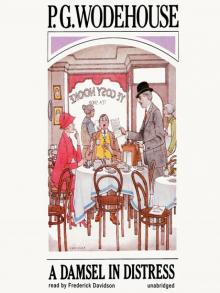 A Damsel in Distress
A Damsel in Distress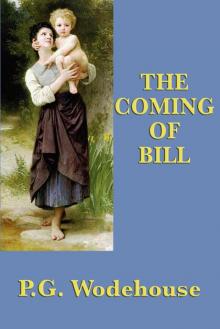 The Coming of Bill
The Coming of Bill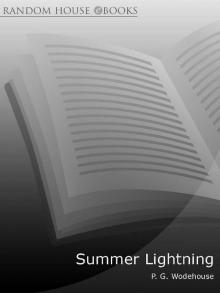 Summer Lightning
Summer Lightning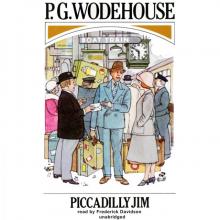 Piccadilly Jim
Piccadilly Jim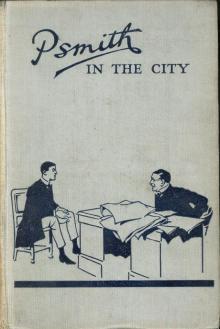 Psmith in the City
Psmith in the City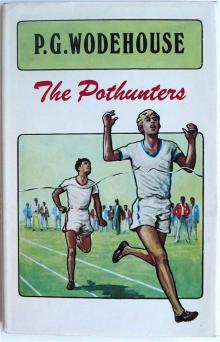 The Pothunters
The Pothunters Service With a Smile
Service With a Smile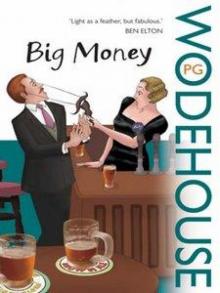 Big Money
Big Money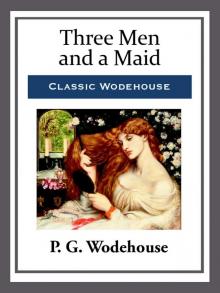 Three Men and a Maid
Three Men and a Maid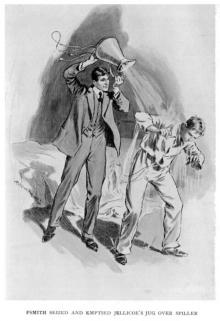 Mike and Psmith
Mike and Psmith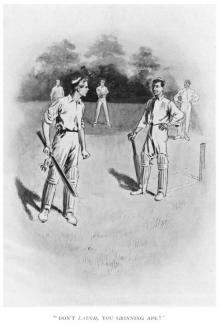 Mike
Mike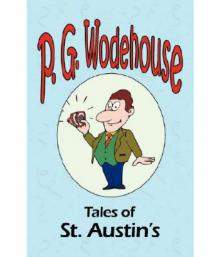 Tales of St. Austin's
Tales of St. Austin's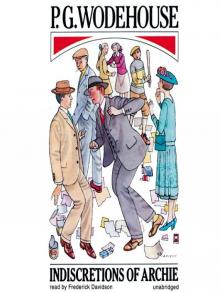 Indiscretions of Archie
Indiscretions of Archie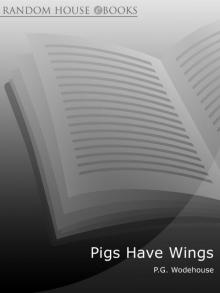 Pigs Have Wings
Pigs Have Wings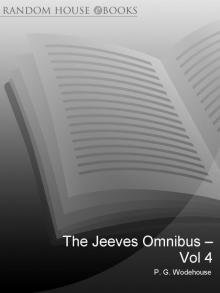 The Jeeves Omnibus - Vol 4: (Jeeves & Wooster): No.4
The Jeeves Omnibus - Vol 4: (Jeeves & Wooster): No.4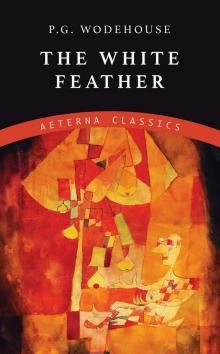 The White Feather
The White Feather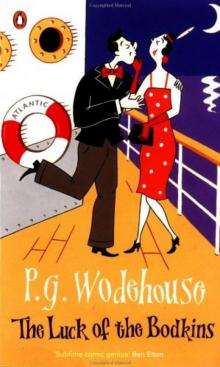 Luck of the Bodkins
Luck of the Bodkins THE SPRING SUIT
THE SPRING SUIT Full Moon
Full Moon Very Good, Jeeves
Very Good, Jeeves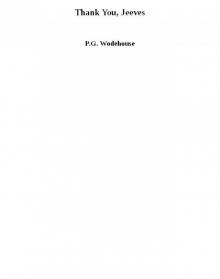 Thank You, Jeeves
Thank You, Jeeves Reginald's Record Knock.
Reginald's Record Knock.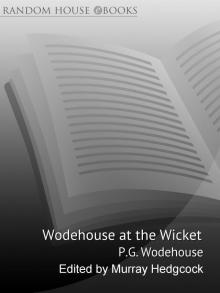 Wodehouse At the Wicket
Wodehouse At the Wicket LADIES AND GENTLEMEN V. PLAYERS
LADIES AND GENTLEMEN V. PLAYERS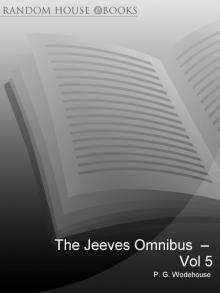 The Jeeves Omnibus - Vol 5: (Jeeves & Wooster)
The Jeeves Omnibus - Vol 5: (Jeeves & Wooster)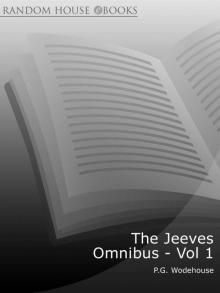 The Jeeves Omnibus - Vol 1: (Jeeves & Wooster): No.1
The Jeeves Omnibus - Vol 1: (Jeeves & Wooster): No.1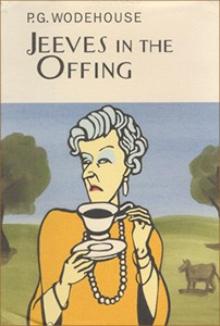 Jeeves in the offing jaw-12
Jeeves in the offing jaw-12